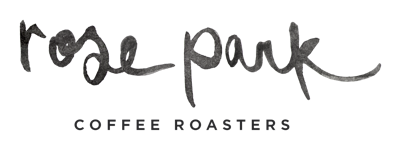Q: Is your coffee Organic and/or Fairtrade?
A: We are not an Organic or Fairtrade Certified coffee roaster. However, some of the coffees that we source are grown and exported Organic and/or Fairtrade Certified. More important to us than those certifications, are the quality of the coffee in the cup and the overall sustainability of social and ecological systems from which that coffee comes. We emphasize personal relationships with our importers, farmers and processing partners as a road to transparency and sustainability in the details. There is no one magic threshold that makes coffee absolutely sustainable. Sustainability is a process that is ever evolving as the needs of the ecological and social systems in source countries change.
Q: Do you have any recommended brewing methods?
A: We recommend grinding your coffee with a burr grinder. Hand burr grinders are a great cheap option. Some of our favorite brew methods are French Press (because it loosely imitates a coffee cupping), an Aeropress (because it’s highly mobile, highly versatile, and it is so easy to clean), and then every other pour-over method under the sun (Chemex, V60, Kalita, etc). Regardless of what method you use, the three most important tricks are: use a good burr grinder, use a scale for measuring the ratio of coffee and water (1:16 is a good place to start), and clean your brewing equipment well. Follow those three tricks and you’ll get great brewed coffee with almost any brewer, including your standard automatic drip brewer.
Q: What is the shelf life of your coffee?
A: The coffee tastes best after it has sat for about five days to degas the CO2 it naturally contains after roasting. Our bags are sealed and nitrogen flushed to keep the coffee fresh for well over a month after roasting it. Once you open the bag of coffee it will typically keep its peak flavor profile for two weeks if it was opened soon after the roast date, or only for about a week if you open it three weeks or more after the roast date. However, the coffee will still taste delicious long after those time frames, the acidity will just be less vibrant and some of the more nuanced tasting notes may be lost.
Q: How should I store the coffee?
A: In a cool (not cold), dry, dark, place and limiting its exposure to oxygen as much as possible (squeezing out the air when you close the coffee bag helps a lot).
Q: What sort of decaf processes are used with your coffees?
A: Our decaf coffees are decaffeinated by one of two ways: 1. Water process (often called Swiss Water Process or Mountain Water Process), and 2. Ethyl Acetate (also known as Sugar Cane Process). The water process involves soaking the coffee in water in a way that leaves good flavor profiles intact, but absorbs the caffeine from the bean. This process is least processing intensive, but most water intensive. Ethyl Acetate is a compound produced by fermenting sugar cane. It is capable of decaffeinating coffee without the water waste of water processes, however the fermentation of sugar cane is more process intensive and the fact that it’s a chemical compound gives some people pause. These are the best available methods for decaffeination in terms of maintaining coffee flavor and minimizing ecological impact. However, because of the water waste we prefer decaffeination by Ethyl Acetate when given the choice between two equally stellar coffees.
Q: What’s the best way to grind the coffee?
A: Any burr grinder. However, you get what you pay for when it comes to electric burr grinders. It’s often worth spending a little more money so that the grinder lasts a long time.
Q: Can you grind the coffee for me?
A: Yes! When you check out you will have the option of selecting grind for French Press, Drip Coffee, or Espresso. Those are the only grind options we can offer.
